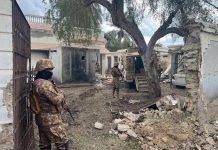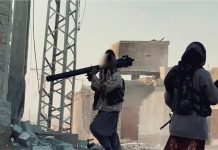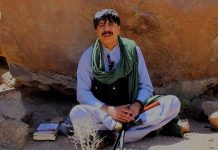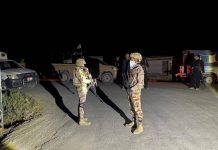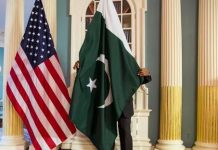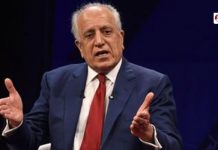WASHINGTON: Torn between preventing Pakistan from going nuclear and fighting the Soviets in Afghanistan, the United States appears to have decided that pushing the Russians out of Kabul was more important, shows a set of documents released by the US State Department.
Official US memos and letter — released under an arrangement to make public official documents after 30 years — show that Chinese leader Deng Xiaoping (in office from 1978 to 1989) also played a key role in convincing Washington to continue to support Islamabad despite its nuclear programme.
History of US-Pakistan relations
A confidential State Department report, dated Aug 20, 1984, shows that by 1984 Washington knew Islamabad had acquired the capability to build nuclear weapons.
“Despite public and private assurances by President Zia (ul Haq) that Pakistan has neither the intention, means, nor capability to acquire nuclear explosives, we have extensive and convincing intelligence that the Pakistanis are pressing forward to perfect the design of a nuclear weapon, fabricate nuclear weapon components, and acquire the necessary nuclear material for such a device,” the report says.
Declassified documents show Chinese leader Deng Xiaoping played key role in convincing Washington to support Islamabad despite its N-programme
The document notes that the development forced Washington to make “a stark choice” between: (1) Acquiescing in Pakistan’s nuclear activities and thus incurring almost certain Congressional action against US security assistance to Pakistan, the possibility of an Indian pre-emptive strike against the Pakistani nuclear facilities, and seriously undermining the credibility of US global non-proliferation policy. (2) Terminating the US-Pakistan security relationship, thereby imperilling the Afghan resistance to Soviet occupation, doing grave and long-term harm to US political and security interests in Southwest Asia and with China, and convincing Pakistan it had nothing further to lose by building nuclear weapons or even conducting a nuclear test.
“Either outcome would constitute a serious foreign policy defeat,” the report warns.
It notes that Washington concluded a $3.2 billion, six-year security and development assistance package with Pakistan to obtain its restraint in the nuclear area. Washington also hoped that a security relationship with the US would “eventually convince Pakistan, that it could forego a nuclear weapons option”.
Other documents show that Deng Xiaoping not only convinced Washington to tolerate Pakistan’s nuclear programme but also persuaded it to start giving more military and financial aid to Islamabad.
Deng worked closely with Zia to convince the then Jimmy Carter administration that India under Prime Minister Indira Gandhi would be pro-Soviet.
“There are limits on our ability to aid Pakistan because of their nuclear explosive programme. Although we still object to their doing so, we will now set that aside for the time being, to facilitate strengthening Pakistan against potential Soviet action,” the then US Defence Secretary Harold Brown said in a Jan 8, 1980 meeting with Deng.
Deng points out that India started the nuclear race in South Asia, causing Pakistan to start its own programme.
“Pakistan has its own arguments, i.e., India has exploded a nuclear device but the world has not seemed to complain about this,” Deng told Brown.
“So, now you have decided to put this aside and solve the question of military and economic aid to Pakistan. We applaud this decision,” said Deng.
He also convinced the US not to equate India and Pakistan when it comes to giving aid.
“You may recall that I raised the question of aid to Pakistan with President Carter. He said the US will give aid in proportion to the population of the two countries. I said this was not feasible.”
Deng explained to Brown why he thought it was a bad idea.
“The Pakistanis and Indians are afraid of each other. If the population ratio formula should be used, Pakistan will be in an increasingly inferior position. We hope that since the United States decided to give aid to Pakistan, it will really satisfy Pakistan’s requirements. We hope your aid to Pakistan will not be affected too much by India’s reaction,” he said.
“With regard to question of South Asia, there is no other way except giving aid to Pakistan. It has always been our view that the US policy giving more attention to India than Pakistan is not an appropriate policy.”
Another memo of a Jan 14, 1980, meeting between Zia and the then US ambassador to Pakistan, shows the general urging Washington to ignore its nuclear programme because Pakistan was playing a key role in the Afghan war.
President Carter’s statement of Jan 4 “gives impression that nuclear issue need not be an obstacle, and Pakistan needs to know precisely what America proposes to do to help Pakistan,” Zia was quoted as saying in a readout of the meeting.











